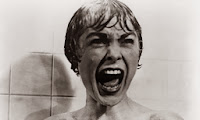Vladimir Propp -
- Russian critic and literary theorist
- Analysed over 100 Russian fairy tales in the 1920's
- Proposed it was easy to classify the characters and their actions into clearly defined roles and functions
.jpg) Character roles -
Character roles -- The hero (seeks something)
- The villain (opposes the hero)
- The donor (helps the hero by pointing out a magic object)
- The dispatcher (sends the hero on his way)
- The false hero (falsely assuming the role of hero)
- The helper (gives support to the hero)
- The princess (the reward for the hero, but also need protection from the villain)
- Her father
- Bulgarian literary theorist
- Suggest most narratives starts with a state of equilibrium in which life is 'normal' and protagonists are happy
- This state of equilibrium is disrupted by an outside force, which has to be fought against in order to return to normality
- Can be applied to a range of films
Roland Barthes -

- French semiologist
- Suggested that narrative works with five different codes to make sense to the audience
Barthes Codes -
- Action - A narrative device by which a revolution is produced through action e.g a shoot out
- Enigma - A narrative device that teases the audience by presenting a puzzle or riddle to be solved. Works to delay the story's ending pleasurably
- Symbolic (connotation)
- Semic (denotation)
- Cultural - A narrative device which the audience can recognise as being part of a culture
- Social Anthropologist
- Studied myths of tribal cultures
- Examined how stories unconsciously reflect the values, beliefs and myths of a culture
- These are usually expressed in the form of binary oppositions
- His research has been adapted by media theorists reveal underlying themes and binary oppositions

- A conflict between two qualities or terms
- E.g 1970's western films:
Christian Pagans
Domestic Savage
Weak Strong
Garden Wilderness
Inside Society Outside Society












